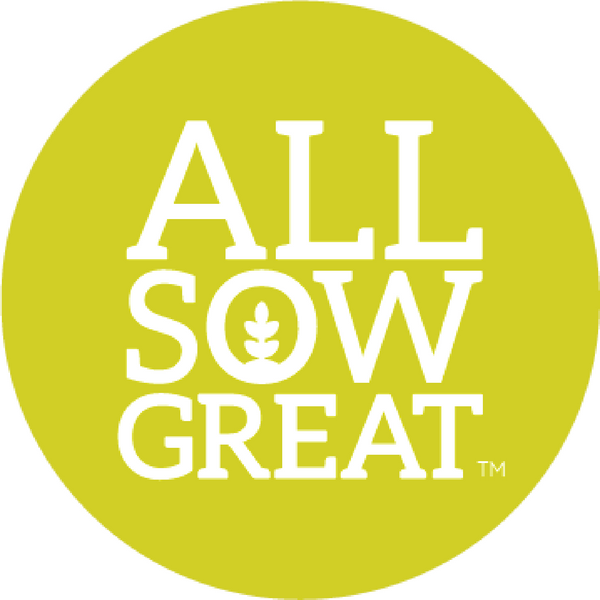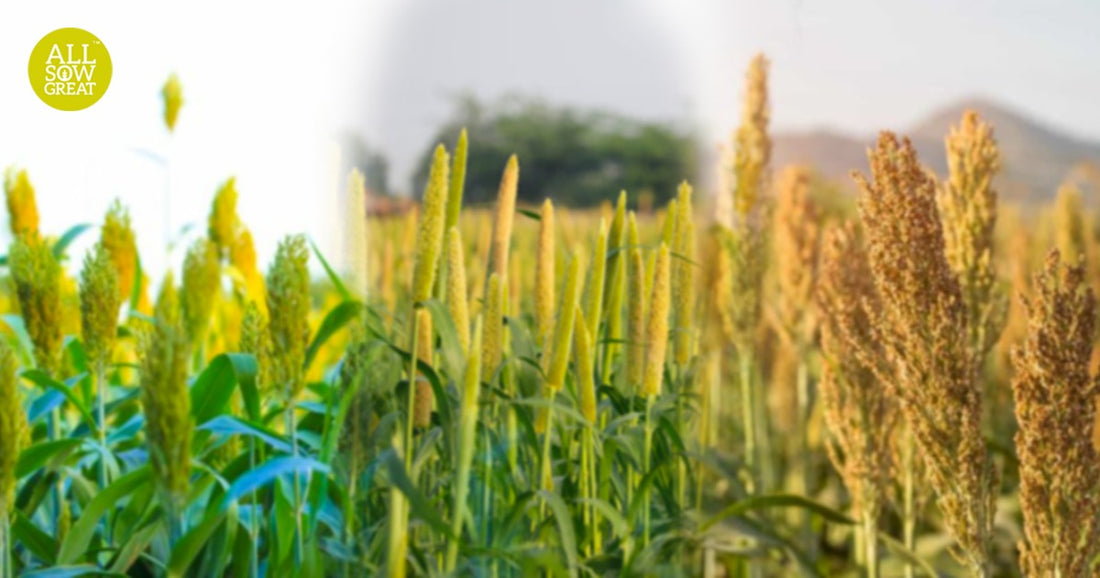In recent years, there has been a growing awareness of the need for sustainable farming practices that can help mitigate climate change, conserve natural resources, and promote food security. One of the promising crops that has garnered attention in this context is millets. These small-seeded grains, which include varieties such as jowar (sorghum), bajra (pearl millet), ragi (finger millet), and foxtail millet, have been cultivated for thousands of years and offer numerous benefits for both human health and the environment.
What Are Millets?
Millets are a group of cereal grains that are widely grown in Asia and Africa. Unlike more commonly known grains such as wheat and rice, millets are highly resilient and can thrive in harsh, arid conditions with minimal water and soil fertility. This makes them an ideal crop for regions that experience frequent droughts and soil degradation.
Millets are also nutritionally superior to many other grains, being rich in fiber, protein, vitamins, and minerals. They are gluten-free, making them suitable for people with gluten sensitivities or celiac disease, and have a low glycemic index, which is beneficial for managing blood sugar levels.
The Environmental Benefits of Millets

Drought Resistance and Low Water Requirement
One of the most significant advantages of millets is their ability to grow in dry, arid conditions with minimal water. This is particularly important in the context of climate change, where water scarcity is becoming an increasingly critical issue. Millets require less water compared to crops like rice and wheat, which are notorious for their high water consumption. By cultivating millets, farmers can reduce their water usage and help conserve this precious resource.
Soil Health and Fertility
Millets are known for their ability to improve soil health and fertility. They have a short growing season and deep root systems, which help prevent soil erosion and improve soil structure. Additionally, millets can be grown in rotation with other crops, which helps maintain soil fertility and reduce the need for chemical fertilizers. This makes millets an excellent choice for sustainable farming practices that aim to preserve soil health and promote long-term agricultural productivity.
Biodiversity and Crop Resilience
Cultivating millets can also contribute to agricultural biodiversity and crop resilience. Unlike monoculture farming, which involves growing a single crop over a large area, millet farming promotes biodiversity by incorporating a variety of millet species and other crops. This diversity helps build a more resilient agricultural system that can better withstand pests, diseases, and changing climatic conditions. By supporting millet farming, we can help create a more sustainable and resilient food system.
Reduced Greenhouse Gas Emissions
Millets have a lower carbon footprint compared to many other staple crops. They require fewer chemical inputs such as fertilizers and pesticides, which are significant sources of greenhouse gas emissions in agriculture. Additionally, millets' low water requirement means less energy is needed for irrigation. By shifting to millet-based agriculture, farmers can help reduce greenhouse gas emissions and mitigate the impacts of climate change.
How Brand is supporting millet farming?
All Sow Great is a brand that has embraced the potential of millets for sustainable farming and nutrition. Founded with a vision to bring back these forgotten superfoods, All Sow Great is committed to promoting the benefits of millets and supporting sustainable agricultural practices. The brand sources its millets locally from the heart of millet-producing regions, ensuring that their products are not only of the highest quality but also contribute to the local communities. By sourcing millets directly from farmers in regions like Barshi in Maharashtra, All Sow Great ensures that their products are fresh, authentic, and support the local economy.
Brand Promise: Good Seed, Good Feed, Good Deed

At the heart of All Sow Great's mission is their brand promise: Good Seed, Good Feed, Good Deed. This promise encapsulates All Sow Great’s commitment to quality, nutrition, and sustainability.
- Good Seed: All Sow Great is dedicated to sourcing the finest millets, ensuring that every product starts with high-quality, nutritious grains.
- Good Feed: The brand prioritizes the well-being of its customers by offering millet-based products that are wholesome, delicious, and packed with nutrients.
- Good Deed: All Sow Great is committed to making a positive impact on the environment and local communities through sustainable farming practices, fair trade, and community support.
All Sow Great’s Product Range
All Sow Great offers a variety of millet-based products that cater to different tastes and preferences. Their product range includes:
- Jowar Coconut Cookies: A delicious and no maida snack made from sorghum/jowar flour and flavored with coconut, providing a delightful blend of taste.
- Jowar Butter Cookies: These no maida cookies offer a rich, buttery flavor with the added benefits of sorghum/jowar, making them a treat for any time of the day.
- Ragi Elaichi Cookies: Made from finger millet and infused with the aromatic flavor of cardamom, these no maida cookies are tasty.
- Ragi Chocolate Cookies: A perfect combination of finger/ragi millet and chocolate, these no maida cookies are a delightful treat for chocolate lovers.
- Jowar Chivda: A savory snack made from sorghum/jowar flakes, seasoned with spices to create a tasty and healthy alternative to traditional snacks.
- Jowar Flakes: Ideal for a nutritious breakfast, these sorghum flakes are easy to prepare and provide a wholesome start to the day. They are gluten free, Low GI, nutrition rich breakfast alternative.
Millets represent a path to eco-friendly agriculture that aligns with the goals of sustainability, health, and resilience. By incorporating millets into our diets and supporting brands like All Sow Great, we can contribute to a more sustainable food system that benefits both people and the planet. With millets, we can enjoy delicious, nutritious food while also making a positive impact on the environment and local communities.

